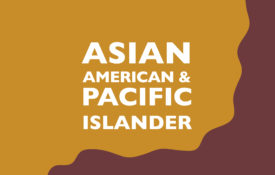-
The New Science of Forgetting
A baby zebrafish is just half the size of a pea. A recent look inside its transparent brain, however, offers clues to the far bigger mystery of how we remember—and how we forget. In an experiment that yielded insights into memory and the brain, a team of researchers at the University of Southern California taught the tiny creature to associate a bright light with a flash of heat, a temperature change the fish responded to by trying to swim away. Using a custom-designed microscope, the team then captured images of the animals’ brains in the moments before and after they learned to associate the light and the heat.
-
Why Are Masks Such a Big Deal for So Many? Psychologists Have Thoughts
If you've been on a flight or taken public transit recently, you might've a lot fewer masks. A Florida judge struck down the federal travel mask mandate last Monday, and while companies aren't being forced to drop their mandates, many have. Meanwhile, the Omicron subvariant BA.2 now accounts for 75 percent of new COVID cases in the U.S. To mask or not to mask continues to be a divisive question. We get into the psychology of why. Dr. Anthony Fauci, Gretchen Chapman, and Steven Taylor join us for the conversation. ...
-
The Bias Hunter
In February 2021, cognitive psychologist Itiel Dror set off a firestorm in the forensics community. In a paper, he suggested forensic pathologists were more likely to pronounce a child’s death a murder versus an accident if the victim was Black and brought to the hospital by the mother’s boyfriend than if they were white and brought in by the grandmother. It was the latest of Dror’s many experiments suggesting forensic scientists are subconsciously influenced by cognitive biases—biases that can put innocent people in jail.
-
Enhancing Student Engagement through Innovative Online Technologies
Have trouble engaging students in online classes? Want to know more Have trouble engaging students in online classes? Want to know more about innovative online teaching techniques? This webinar is supported by the Association for Psychological Sciences (APS) Fund for Teaching and Public Understanding of Psychological Science to promote teaching technologies for online courses. These techniques may apply to both synchronous and asynchronous formats. These tools support a variety of learning methods for students.
-
Implicit-Bias Remedies: Treating Discriminatory Bias as a Public-Health Problem
Psychological Science in the Public Interest (Volume 23, Number 1)Read the Full Text (PDF, HTML) Implicit bias refers to thoughts, attitudes, or stereotypes that can be measured indirectly and can operate without awareness. Such measurements have been associated with discriminatory judgments and behaviors, prompting efforts by many researchers to understand how to overcome implicit biases. Some researchers have suggested interventions at the individual level to weaken or eradicate implicit biases. Others have recommended training programs administered to groups to overcome biases more broadly, including implicit ones. Both approaches appear to be inefficient.
-

Collected Research by Asian American and Pacific Islander Psychological Scientists
Research by psychological scientists Serena Chen, Stephen Chen, Angela Duckworth, and Jackson Lu.

